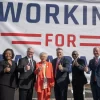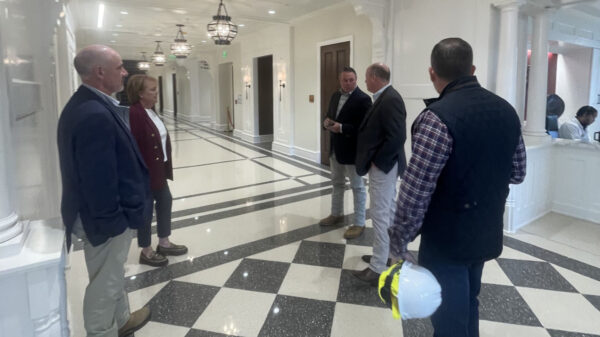Have you ever been traveling down the highway, about to change lanes when you look over your shoulder and see there is a car in your blind spot? How long was it there? Why didn’t you notice it before? It’s critical to the situation at hand, and all it took was a different perspective to notice it.
When traveling the Workforce Super Highway there are several population segments that are crucial to solving our workforce needs, but we have failed to look at them in a different perspective. A quick glance around shows an untapped labor source right in front of us, living in our communities and across each of the seven workforce regions. They are shopping with you at the grocery store, sitting in the stands at the Friday night ball games and very much qualified to work in most of the jobs open in Alabama. They are people simply needing an opportunity and training to become key travelers on the Alabama Workforce Super Highway.
So, who are these potential workers? They are Alabama citizens who are deaf/hard of hearing, have vision loss, or have an intellectual or physical disability and require accommodations to obtain or maintain employment. Each day, the Alabama Department of Rehabilitation Services (ADRS) works with Alabamians with disabilities to provide vocational evaluations, recommend accommodations or assist with training to ensure employee success. ADRS also works with employers at no cost, providing pre-hire screening and disability-related training and recommending worksite accommodations needed to retain valued employees.
Families, friends and recovering addicts affected by the Opioid Crisis are another group of potential workers in the blind spot. You may have seen all the attention given to this topic…this is a crisis, but with the right intervention, an addict can be rehabilitated and with the help of professionals can find their place in our workforce. It is fixable and Governor Ivey has appointed some brilliant people who are working diligently to help our state with strategies to reverse the situation. Today, a large number of these affected individuals could be your next employee.
State and federal prisoners in Alabama represent a future work force segment of very capable and skilled individuals. There are many re-entry programs across the state involved with assisting soon- to-be-released prisoners with a means to employment. One of those organizations is the Alabama Community College System (ACCS). ACCS has several dedicated programs looking for opportunities to connect these men and women back into the workforce.
The Alabama Department of Human Resources (DHR) works to connect individuals with training and social skill development and provide opportunities to enter the workforce. Many of DHR’s clients receive SNAP and TANF federal dollars and face economic, transportation and childcare barriers preventing them from working. DHR works closely with Family Resource Centers across the state to help these potential workers overcome barriers to seeking employment.
In essence, work force sources that are often overlooked or forgotten are extremely important and valuable to Alabama’s growing workforce demand. These sources are not “mainstream” and sometimes require a little more work and effort, but typically these individuals when given a chance to prove themselves are extraordinary, loyal and committed. None of these sources is the complete answer to our workforce challenges, but they are great sources of untapped potential to be used in tandem.
Contact each of these agencies for more information or simply go to AlabamaWorks.com for contact information and motor onto the workforce super highway.



















































